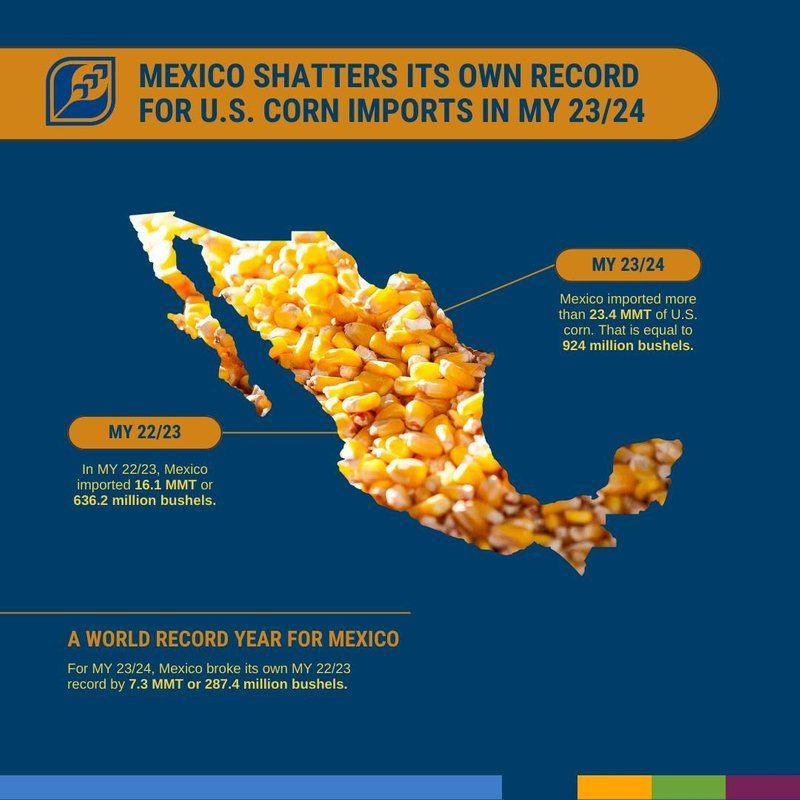Mexico Shatters U.S. Corn Import Record

The numbers are in from Marketing Year (MY) 23/24, and Mexico has officially shattered its own record for U.S. corn imports, blowing past the previous high set by China!
In MY 22/23, Mexico imported 16.1 million metric tons (MMT), or 636.2 million bushels, of U.S. corn. This past year, Mexico raised the bar even higher, importing over 23.4 MMT—an astounding 924 million bushels—breaking their own record by 7.3 MMT or 287.4 million bushels.
>>To put it in perspective, this is more than double the amount imported by the second-largest market, Japan.
These record-breaking imports are vital to Illinois farmers, who export nearly 50% of the corn grown in Illinois out of state. Mexico’s strong demand ensures continued opportunities for Illinois corn, driving economic growth for the state's agriculture.
As the numbers show, Mexico remains a powerhouse market for U.S. corn.







